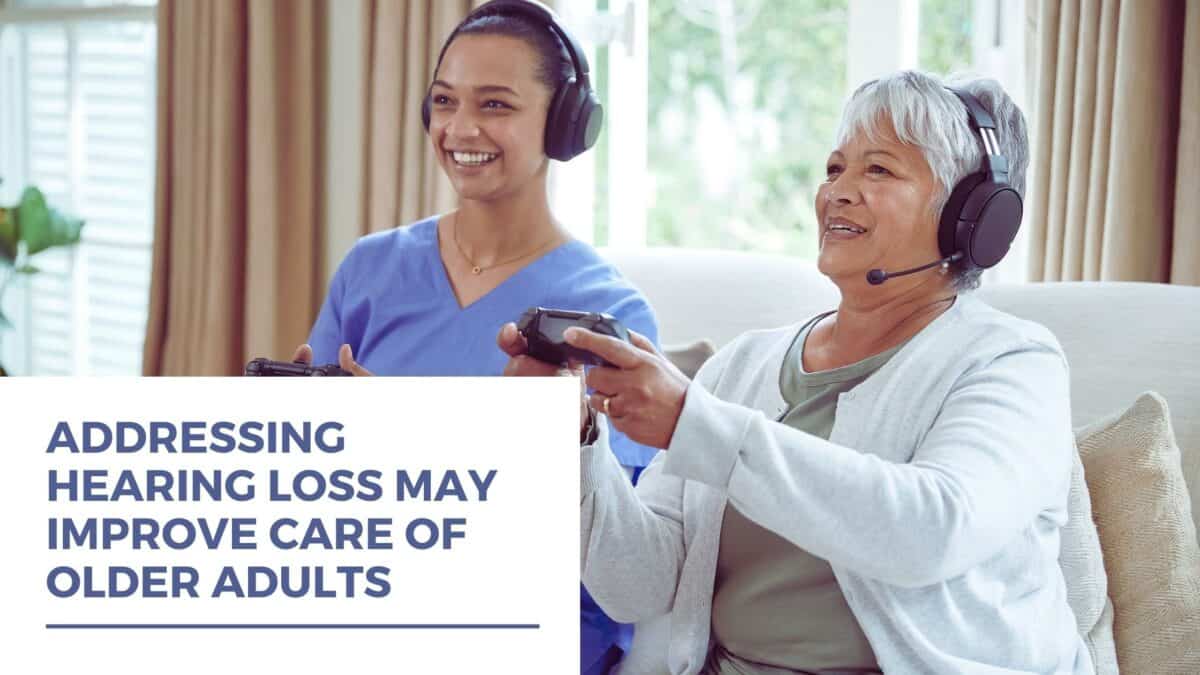A major component of good care is communication. If you or a loved one has hearing loss, it might be that the condition is impacting the quality and outcomes of care, whether that is in-home care, at a long-term care facility, or even a trip to the doctor’s office or emergency room.
Age remains the strongest predictor of hearing loss and most people who have trouble hearing acquired hearing loss later in life and so are not skilled at sign language.
Hearing loss impacts care and wellness outcomes
In a recent study out of New York City, researchers at New York University looked at data collected from a national survey. Their findings revealed that people with trouble communicating, as is common with people with hearing loss, were more likely to be readmitted to the hospital within 30 days compared to people who did not cite communication as a problem. The odds were significant, as they were more than 30% more likely to find themselves back in the hospital.
There are quite a few lessons to be found from that survey, but perhaps the most important is the profound role that communication plays in patient care and wellness.
The trouble with communication in care settings
Physicians and care staff are not trained extensively in communicating with people who have hearing loss and other communication disorders. In older people who have hearing loss, there is the risk that they are pretending to hear when they don’t. This can come as a result of avoiding a hearing loss diagnosis or even treatment. It can arise as a coping mechanism for people who have had subtle signs of hearing loss for years or even decades. Eventually, it becomes an ingrained habit. This can lead to resentments, misunderstandings, frustration, and many other negative outcomes.
The problem is that it interferes with successful care outcomes. If a patient doesn’t understand instructions or results, that can impact their ability to comprehend their injury or illness and the requisite care required for follow-up.
If a patient is getting by with yeses and nos instead of asking questions and providing careful answers, then a physician or caregiver is unlikely to have the complete picture of health.
Shouting by medical professionals and caregivers can destroy the trust relationship and isn’t even a useful strategy in speaking to accommodate hearing loss, to begin with.
Ways to improve communication
There are tools available to make communication more accessible to people with hearing loss. In the absence of hearing aids or a cochlear implant, listening assistive devices can improve a person’s hearing experience. These types of tools can range from hearing aids to FM systems.
It’s also a simple fix to set up a laptop, connect to WiFi, and access an internet-based software that does auto-captioning. If you are accompanying a loved one to a medical visit or checking in on them in a care facility, ensure that they are wearing their hearing aids regularly. Make sure that the staff responsible for most of their one-on-one care is aware that they wear hearing aids and ask them to prompt your loved one to wear them every day.
Physicians and caregivers should be aware of and trained in managing situations with patients who have trouble hearing. It is a condition that impacts a large portion of older adults, precisely the demographic that is also seeking additional care as they get older.
If your older loved one is in a care situation
We don’t typically research assistive hearing options until we need them, and it’s safe to assume that many older people lack the resources or know-how to traverse the internet. The responsibility can then fall to younger friends or family members. Speak to the people in charge of providing care and ask what they typically do with patients when they have communication difficulties. According to the American Disabilities Act, people are required to have reasonable accommodations provided when they have difficulty hearing or deafness.
Schedule a hearing consultation today
One way to prevent becoming a victim of communication mishaps due to hearing loss in the future is to attend to your hearing health today. Schedule a hearing consultation soon and make the monitoring of your hearing health a priority in your life. Annual exams and check-ins with our team of hearing health professionals can help you face any changes in your hearing abilities proactively and from the very start.

